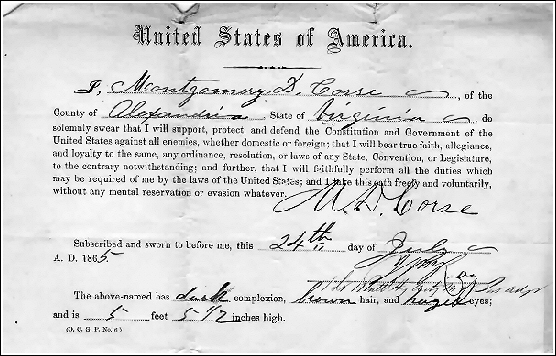FRtR > Outlines > The American Government > Fundamentals of American Government > Requirements for Citizenship
An Outline of American Government
Fundamentals of American Government
Requirements for Citizenship
*** Index * < Previous Chapter * Next Chapter > ***
To exercise the right to vote,
hold public office, or serve on
juries, a person must be an American citizen. Under the
Constitution, all persons born in the United States and subject
to its jurisdiction are citizens of the United States and of the
district in which they reside. Under certain conditions,
children born to American citizens while they are traveling or
living outside the country are also citizens. Persons born in
Puerto Rico, Guam and the U.S. Virgin Islands -- all of which are
part of the United States but are not states -- are American
citizens as well.
A person born in a foreign country may become an American citizen
through the process of naturalization. Aliens who live in the
United States are not compelled to become citizens, nor are they
penalized for not doing so. A great many noncitizens live in the
United States and enjoy the same freedom of thought, speech and
action accorded to natural-born Americans. They may not, of
course, vote, and in some states citizenship is a requirement for
applicants who wish to obtain licenses to practice law or
medicine.
To be eligible for naturalization, a person must be at least 18
years of age. He or she must have entered the United States
legally and must have been a resident of the country for at least
five years, including at least six months in the state in which
he or she applies for citizenship.
A candidate for citizenship makes application to the Immigration
and Naturalization Service of the Department of Justice. The
agency notifies the applicant where and when to appear for
examination. An officer of the agency aids the applicant in
filing a petition for naturalization with a court. It is
required that two American citizens, known to be truthful, must
support the petition and swear that the applicant has fulfilled
the residence requirements, is of good moral character, and will
support the principles of the Constitution of the United States.
Both the applicant and the witnesses are questioned by an
examiner of the Immigration and Naturalization Service to make
sure the applicant is qualified.

The final step is taking the oath of allegiance to the United
States. At least 30 days must pass between the filing of the
petition and taking the oath. After the oath, a judge signs an
order granting naturalized citizenship. A certificate of
naturalization is issued and the new citizen is then eligible to
vote and take an active part in the government.
*** Index * < Previous Chapter * Next Chapter > ***
